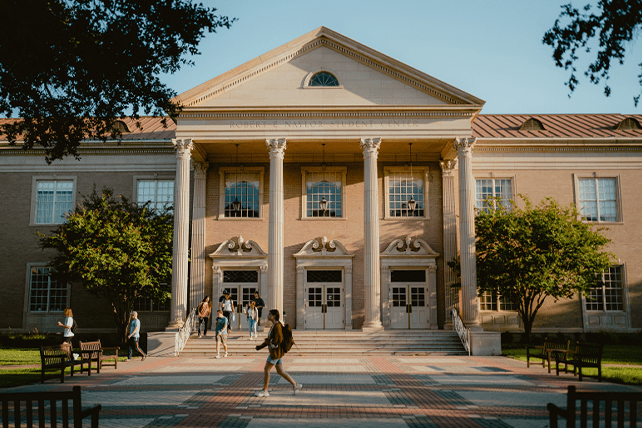(RNS) — For much of the past decade, Southwestern Baptist Theological Seminary in Fort Worth, Texas, has been making headlines for all the wrong reasons.
Once the nation’s largest seminary, and one of six Southern Baptist seminaries, the school has been a center of controversy since the 2018 firing of its former president, Paige Patterson, for mishandling a claim of sexual abuse by a female student at a previous job. Since then, the school has ousted a second president, who then sued the school, admitted to overspending its budget by $140 million, fought in court with ex-employees over a foundation that supported the school, dealt with a Department of Justice investigation, and experienced internal board conflict over declining enrollment and fiscal crisis.
By the time David Dockery, a soft-spoken but well-respected Baptist leader, was named the school’s interim president in the fall of 2022, the school was out of cash. “In September of 2022 we had $4.2 million of short-term debt with the credit line maxed out, and wondering if we were going to be able to navigate our way even through that particular academic year,” Dockery told RNS in a recent interview.
Today, the school is in a place of “genuine stability,” according to Dockery, 72, who dropped the interim from his title in 2023. Enrollment is up, the school has paid off its short-term debt and has $10 million in cash on hand. More importantly, perhaps, the trustees and school administration are on the same page. “The spirit on campus is positive, and people are encouraged about the direction of the seminary,” Dockery said.
“I’m not surprised at all that Southwestern has stabilized under him,” said Barry Hankins, a Baylor University historian. “He just has a track record of being able to do that.”
Before coming to Southwestern, Dockery was president of Union University in Jackson, Tennessee, and Trinity Evangelical Divinity School outside Chicago. And besides a reputation as a solid scholar, according to Hankins, he had a history of effective leadership, including dealing with crisis.
In 2008, a devastating tornado hit Union, causing $40 million in damage, destroying most of the dorms and leaving much of the campus covered in rubble. Dockery helped rally the campus, got students back in classes within a few weeks and started to rebuild.
During the recovery, Dockery said he learned some essential lessons, such as the importance of community prayer, clear communication and working together. Union also committed itself to what Dockery called an “essential mindset” — focusing on its most important tasks.
“Our response was a team effort, led by a group of seasoned administrators who were all deeply committed to Union, who knew and trusted each other, and almost all of whom had worked together at Union for at least ten years,” he said in an email. “We understood each other’s strengths and weaknesses and worked harmoniously and seamlessly together.”
It also helped that there was no one to blame for causing the crisis — which was not the case when Dockery took over at Southwestern. Most of the senior leaders were new to their roles. Trust was hard to come by, and there was little unity on campus. That has made rebuilding harder.
“Not everyone was cheering for us because there was confusion both on campus, among the board, and among constituents as to what had happened and why it had taken place,” he said.
Early on, Dockery set out to address the campus culture. He and other leaders organized weekly prayer meetings and set out core values, designed to help create what he called a “grace filled” work culture. Dockery also borrowed from his time at Union in getting people to work together on the essentials.

